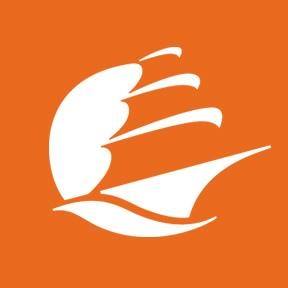Learn about computer networks, databases, security, and web systems in small classes with leading faculty. Information Technology (IT) is amongst the most popular and in-demand fields of study.

Earn a degree in information technology, one of the most popular and in-demand fields of study.
IT professionals work anywhere from small businesses to multi-national corporations in a huge variety of roles, from testing security to developing websites to installing computer networks.
Learn about computer networks, databases, security, and web systems in small classes with leading faculty. Information Technology (IT) is amongst the most popular and in-demand fields of study.
As long as technology stays, the information technology field will always be in demand. Let’s try to understand the importance of having a degree in this field.
What Is Information Technology?
Information technologists focus on the use of existing solutions (products) as building blocks to be used to construct information-processing environments and on the management (integration, maintenance, and administration) of these environments.
The emphasis of an information technology (IT) degree is on the understanding of the concepts and the know-how of technology. Information technology specialists need a fundamental understanding of the capabilities of computer-based technologies to effectively select and assemble components into information processing environments that satisfy the information processing needs of businesses and organizations and then manage and administer these environments.
IT Major Requirements
A bachelor’s degree in IT stands on four major pillars of IT: computer networks, information security, web systems, and information management systems (databases). After foundation courses, students then explore the advanced courses in these fields.
One major requirement is that students are supposed to select a minor (other than IT minor), from a list of minors in various fields of study. This allows students to explore other fields of their interest that would complement their IT skills. This then can be used towards their advantage when searching for jobs.
Student Outcomes
Analyze a complex computing problem and apply principles of computing and other relevant disciplines to identify solutions
Design, implement, and evaluate a computing?based solution to meet a given set of computing requirements in the context of the program’s discipline
Communicate effectively in a variety of professional contexts
Recognize professional responsibilities and make informed judgments in computing practice based on legal and ethical principles
Function effectively as a member or leader of a team engaged in activities appropriate to the program’s discipline
Identify and analyze user needs and to take them into account in the selection, creation, integration, evaluation, and administration of computing-based systems.
Program Educational Objectives
Explain and apply appropriate information technologies and employ appropriate methodologies to help an individual or organization achieve its goals and objectives
Function as a user advocate
Manage the information technology resources of an individual or organization
Anticipate the changing direction of information technology and evaluate and communicate the likely utility of new technologies to an individual or organization
Understand and, in some cases, contribute to the scientific, mathematical, and theoretical foundations on which information technologies are built
Students will recognize the need for and will have the ability to engage in continuing professional development through self-study, specialized training courses, and/or graduate-level course work
Careers In Information Technology
IT Professionals deal with keeping IT systems running smoothly, designing and installing computer networks, testing security, developing and designing websites, planning and developing databases, troubleshooting and solving any issues that arise. You will also be responsible for deploying new hardware and software as needed and maintaining these services.
As an example, Information security analysts are the security guards of information systems. The responsibility of shielding an organization’s computer systems and networks from infiltration is of these professionals.
Why IT At Salem State University?
Small class size and individual advising
Newly furnished, well-equipped, modern labs
Affordable cost
Experienced, exceptional faculty in the field
Salem State University offers a vibrant seaside campus in the hip, historic city of Salem, Massachusetts. See what it's like to be a Viking by visiting our campus — we can't wait to show you around.
Our Mission
As a comprehensive university, Salem State prepares students of diverse backgrounds and interests to achieve their educational and career goals and to contribute to a global society as ethical and engaged community members.
As a public university, Salem State also makes critical contributions to civic life, environmental sustainability, and the cultural, social, and economic vitality of the North Shore region.
We fulfill this mission principally by:
Core Values
In pursuing our mission, as a campus community we embrace, are inspired by, and seek to embody the following core institutional values:
© 2025 coursetakers.com All Rights Reserved. Terms and Conditions of use | Privacy Policy